Now restored to print with a new Foreword by Philip Gourevitch and an Afterword by the author, The Village of Waiting is a frank, moving, and vivid account of contemporary life in West Africa. Stationed as a Peace Corps instructor in the village of Lavié (the name means “wait a little more”) in tiny and underdeveloped Togo, George Packer reveals his own schooling at the hands of an unforgettable array of townspeople―peasants, chiefs, charlatans, children, market women, cripples, crazies, and those who, having lost or given up much of their traditional identity and fastened their hopes on “development,” find themselves trapped between the familiar repetitions of rural life and the chafing monotony of waiting for change.
The Village of Waiting
KSh 995.00
Now restored to print with a new Foreword by Philip Gourevitch and an Afterword by the author, The Village of Waiting is a frank, moving, and vivid account of contemporary life in West Africa. Stationed as a Peace Corps instructor in the village of Lavié (the name means “wait a little more”) in tiny and underdeveloped Togo, George Packer reveals his own schooling at the hands of an unforgettable array of townspeople―peasants, chiefs, charlatans, children, market women, cripples, crazies, and those who, having lost or given up much of their traditional identity and fastened their hopes on “development,” find themselves trapped between the familiar repetitions of rural life and the chafing monotony of waiting for change.
Related products
-
Sapiens: A Brief History of Humankind
KSh 595.00How did our species succeed in the battle for dominance Why did our foraging ancestors come together to create cities and kingdoms How did we come to believe in gods nations and human rights to trust money books and laws and to be enslaved by bureaucracy timetables and consumerism And what will our world be like in the millennia to come
-
River God (The Egyptian Novels)
KSh 400.00Ancient Egypt. Land of the Pharaohs. A kingdom built on gold. A legend shattered by greed…. Now the Valley of Kings lies ravaged by war, drained of its lifeblood, as weak men inherit the cherished crown. For Tanus, the fair-haired young lion of a warrior, the gods have decreed that he will lead Egypt’s army in a bold attempt to reunite the Kingdom’s shattered halves. But Tanus will have to defy the same gods to attain the reward they have forbidden him, an object more prized than battle’s glory: possession of the Lady Lostris, a rare beauty with skin the color of oiled cedar – destined for the adoration of a nation, and the love of one extraordinary man.
KSh 650.00 -
From the land of Pashtuns to the land of Maa
KSh 2,000.00From the Land of Pashtuns to the Land of Maa: Memoir (2013) Kenyan-born Khan traces his father’s journey from his village in India (now within Pakistan) to Kenya in 1929, alone, at the age of 18 after a family dispute.
Here is the story of migration, of Khan’s father and other Pashtuns (mainly from the Punjab Province of Pakistan), to the Maasai tribal lands in rural Kenya. His father, Juma Khan, raised 18 children from two wives: the first was a Maasai woman who assumed a Muslim name after marriage, and the second was the daughter of a Pakistani father and Maasai mother. It was a time of colonial rule when mixed marriages – and children from them – were regarded with discrimination.
-
In His Father’s Footsteps
KSh 400.00As the Americans liberate the Buchenwald concentration camp, among the survivors are teenagers Emmanuelle and Jakob, who fell in love despite the suffering surrounding them. With help, they make their way to New York, resolved to make a new life on the Lower East Side, working at gruelling, poorly paid jobs.
Decades later, Jakob has achieved enormous success, showing his son Max that America is truly the land of opportunity. Max is a Harvard graduate with friends among the wealthiest families in the world, and he chooses a perfect bride to start the perfect American family.
Max’s lavish lifestyle is unimaginable to his cautious, old-world parents. But after the birth of his children, and with a failing marriage, he fears his wife is keeping secrets.
KSh 795.00 -
Women, Land and Justice in Tanzania (African Edition)
KSh 2,000.00Recent decades have seen a wave of land law reforms across Africa, in the context of a “land rush” and land-grabbing. But how has this been enacted on the ground and, in particular, how have women experienced this? This book seeksto re-orientate current debates on women’s land rights towards a focus on the law in action. Drawing on the author’s ethnographic research in the Arusha region of Tanzania, it explores how the country’s land law reforms have impacted on women’s legal claims to land. Centring on cases involving women litigants, the book considers the extent to which women are realising their interests in land through land courts and follows the progression of women’s claims to land – from their social origins through processes of dispute resolution to judgment.
Dancer’s work explores three central issues. First, it considers the nature of women’s claims to land in Tanzanian family contexts,the value of land in an era of land reform and the ‘land rush’ across Africa, and the extent to which the social issues raised are addressed by Tanzania’s current laws and legal system. Secondly, it examines how agency and power relations between social and legal actors engaged in legal processes affect women’s access to justice and the progression of claims. Thirdly, it explores Tanzanian concepts of justice and rights and how women’s claims have been judged by land courts in practice.Helen Dancer is a lecturer in Law at the University of Brighton. She practised as a barrister in England specialising in family legal aid cases prior to training as a legal anthropologist. She is also a consultant for Future Agricultures at IDS, University of Sussex. Her areas of research interest include law and development, gender and land, and human rights and legal pluralism.
-
The Dreadful Judgement
KSh 650.00If the story that struck the Grand Banks off Newfoundland in October 1991 was “The Perfect Storm”, the fire that destroyed London in September 1666 was “The Perfect Fire”. A fire needs only three things: a spark to ignite it, and the fuel and oxygen to feed it. In 1666, a ten-month drought had turned London into a tinderbox. The older parts of the city were almost entirely composed of wood-frame buildings and shanties. The riverside wharves were stack with wood, coal, oil, tallow, hemp, pitch, brandy, and almost every other combustible material known to seventeenth century man. On 2 September 1666, London ignited. Over the next five days the gale blew without interruption and the resulting firestorm destroyed the whole city. “The Dreadful Judgement” tells the true, human story of the Great Fire of London through the eyes of the individuals caught up in it. It is a historical story combining modern knowledge of the physics of fire, forensics and arson investigation with the moving eye-witness accounts to produce a searing depiction of the terrible reality of the Great Fire of London and its impact on those who lived through it.
-
Land, Migration and Belonging
KSh 14,560.00Tracing the history of the Basotho, a small mainly Christianised community of evangelists working for the Dutch Reformed Church, this book examines the challenges faced by minority ethnic groups in colonial Zimbabwe and how they tried to strike a balance between particularism and integration. Maintaining their own language and community farm, the Basotho used ownership of freehold land, religion and a shared history to sustain their identity. The author analyses the challenges they faced in purchasing land and in engaging with colonial administrators and missionaries, as well as the nature and impact of internal schisms within the community, and shows how their “unity in diversity”impacted on their struggles for belonging and shaped their lives. This detailed account of the experiences and strategies the Basotho deployed in interactions with the Dutch Reformed Church missionaries and colonial administrators as well as with their non-Sotho neighbours will contribute to wider debates about migration, identity and the politics of belonging, and to our understanding of African agency in the context of colonial and missionary encounters.
Published in association with the British Institute in Eastern Africa
-
The War Within: New perspective on the civil war on Mozambique (African Edition)
KSh 2,000.00The 1976-1992 civil war which opposed the Government of Frelimo and the Renamo guerrillas (among other actors) is a central event in the history of Mozambique. Aiming to open up a new era of studies of the war, this book re-evaluates this period from a number of different local perspectives in an attempt to better understand the history, complexity and multiple dynamics of the armed conflict. Focusing at local level on either a province or a single village, the authors analyse the conflict as a “total social phenomena” involving all elements of society and impacting on every aspect of life across the country. The chapters examine Frelimo and Renamo as well as private, popular and state militias, the Catholic Church, NGOs and traders. Drawing on previously unexamined sources such as local and provincial state archives, religious archives, the guerrilla’s own documentation and interviews, the authors uncoveralternative dimensions of the civil war. The book thus enables a deeper understanding of the conflict and its actors as well as offering an explanatory framework for understanding peacemaking, the nature of contemporary politics,and the current conflict in the country.
Eric Morier-Genoud is a Lecturer in African history at Queen’s University Belfast; Domingos Manuel do Rosário is Lecturer in electoral sociology and electoral governance at Eduardo Mondlane University, Maputo, Mozambique; Michel Cahen is a Senior Researcher at the Centre National de la Recherche Scientifique (CNRS) at Bordeaux Political Studies Institute and at the Casa de Velázquez in Madrid.



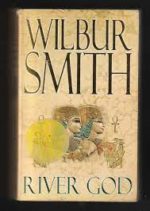
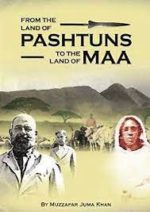

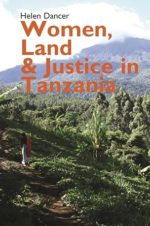
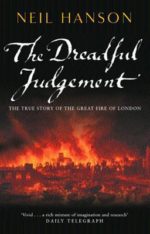

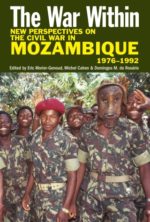
Be the first to review “The Village of Waiting”